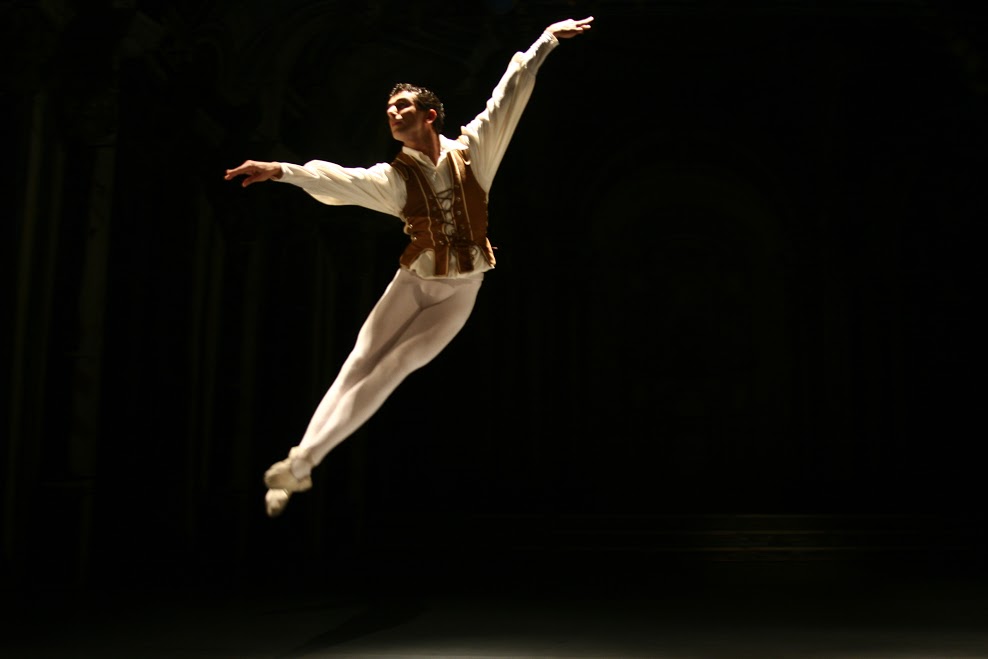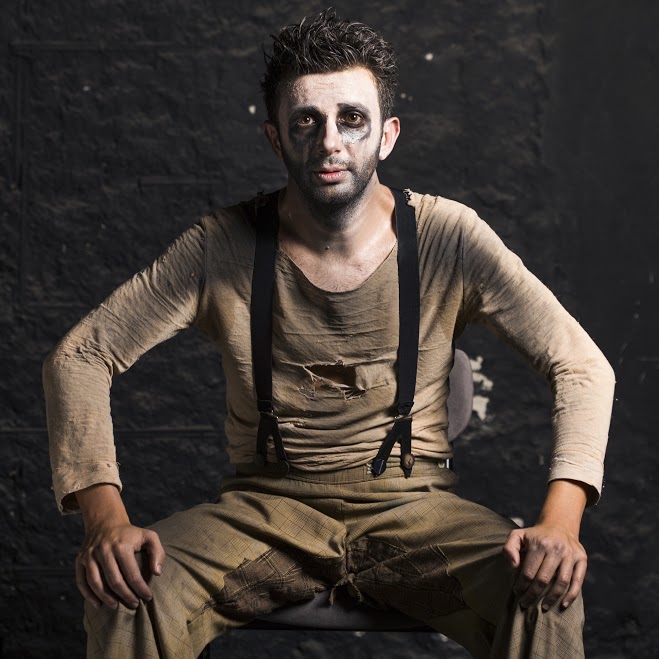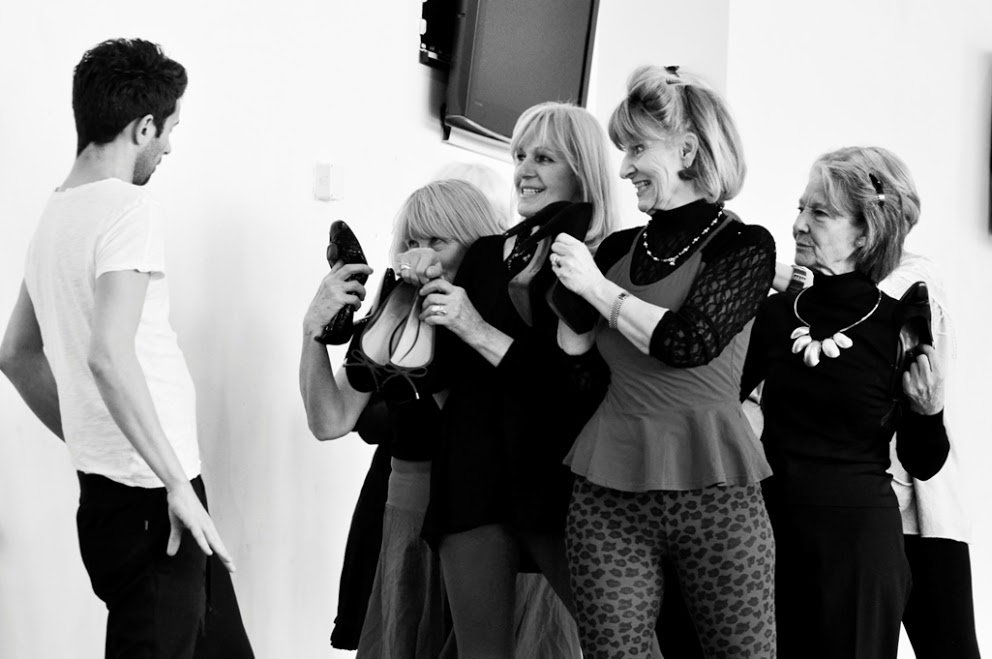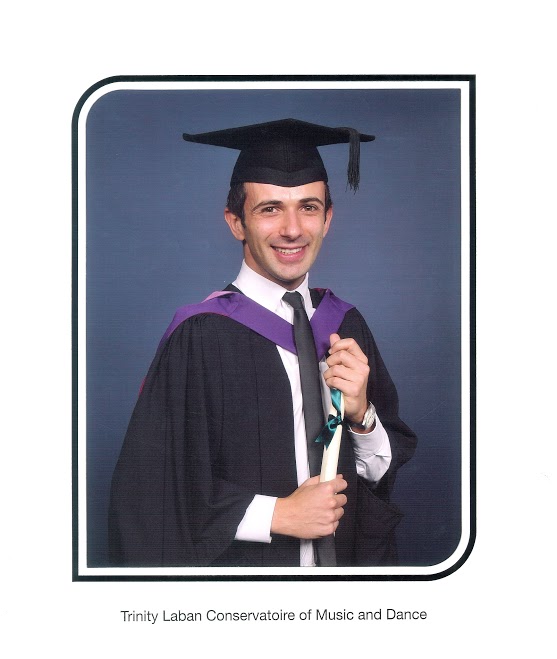Life is one big miracle. Discover it bit by bit every day and just laugh. Life is precious and irreversible – says Aleksandar Saša Ilić, a ballet dancer, choreographer and poet who even as a child knew that he would become an artist one day.

By Sonja Lapatanov
Aleksandar left his hometown of Šid, in West Srem County, for Novi Sad where he attended a music school after which he moved to Belgrade where he enrolled into the Luj Davičo Ballet School. In his final year, Aleksandar started his professional career as a member of the National Theatre Ballet Troupe where, after a string of soloist roles, he was given the status of the principal dancer. Choreography was both a gift and a challenge that he succumbed to. Aleksandar also wrote two poetry books – „The Holiday of the Heart“ („Praznik Srca“) and „In the Presence of Whisper“ („U Prisustvu Šapata“). On top of that he graduated communicology and has a Masters degree in choreography. In 2015, he became an associate professor teaching Drama and Audiovisual Arts. He is an artist of unique sensibility, schooled in Belgrade and London, who decided to share his knowledge with the students of the Institute of Artistic Dance (IAD), the first higher learning dance institute in Serbia which he both founded and is a professor at.
If you lived abroad, you would be well compensated for your knowledge, education, experience, creativity and ideas. Still, you have decided to live here. What is the price that a successful artist has to pay in Serbia today?
An artist has to travel, expand his or her horizons, and constantly seek new challenges. My decision was to leave from time to time while still living here. It is a great privilege being respected and acknoweldged in your surroundings. For me, the financial compensation doesn’t mean anything compared to the love I feel for my city, Belgrade, and my country. All the road signs keep telling me that I made a good decision when I chose to live and work here.

Is money still a measure of value, or does soul play some part in it ?
For me, the real measure of value is good upbringing, sincerity and steadfastness.

The life of a ballet artist is a difficult one. What have you sacrificed for ballet all these years, and what has ballet taught you?
Everything I have sacrificed has brought, in return, multiple benefits. Ballet made me disciplined and taught me that sleep is one of the most important aspect of properly looking after your body. The classical ballet, and dance in general, is a way of life, and its routine actually always stay with you.

What were the biggest challenges in your career and your private life ?
The challenges are always the same – TO DARE and TO KNOW, and TO KNOW when TO STOP.

In 2012, at the Trinity Laban Conservatoire of Music and Dance, you presented your Master’s thesis – “My Phobia – Pteronophobia”, which was inspired by the Act 2 of Swan Lake, and your own fear of feathers. Where does this fear originate from?
Never before had I dealt with my personal issues through art (apart in poetry) until I stepped into the world of dance education at the Laban Conservatoire in London. Our mentor, Tony Thatcher took us all the way to the beginning. This is where the idea of a personal phobia – the fear of feathers – came up. A bird is an infite symbol of everything earthly, and it gave me an opportunity to translate that into my Master’s degree. I cannot tell you whether Rudolph Laban smiled after I presented my Master’s thesis and whether I have made peace with my phobia, but I can tell you that today I share my home with three feathery rascals.
We all remember your iconic role of Miško in the ballet that became a cult classic – “Who’s Singin’ Over There?” (“Ko to tamo peva?”). On 2nd June, 2017, on your 40th birthday, you announced that you would be dancing in this role for the last time at the National Theatre on 27th June. What prompted you to make such decision?
There is an old saying that goes – know when it’s time to leave. Although I am a classically trained ballet dancer, the role of Miško was very significant for my career. I played him, to my great satisfaction, for 13 years, i.e. over 100 times, or rather around 150 times. Now, with heavy heart, I will leave the role to younger dancers, because they are our successors.
Your role models are rather peculiar. Who are they, and how much did they affect your artistic development?
I would like to single out two people who have influenced my professional development and success – ballet maestro Bakhram Maripovich Yuldashev and Staša Zurovac. I am fortunate enough to have them as my friends and colleagues I am cooperating with. Apart from these two, I have to mention my choreography professor Tony Thatcher from London.


You debuted as a choreographer at the Festival of Choreographic Miniatures in 1999. How did your career as a choreographer develop after that and how many projects have you done so far?
The Festival of Choreographic Miniatures is the most important festival for young artists not only from Serbia, but also from the region and the world too. In Serbia, I choreographed four full-length performances, as well as many operas and children plays. In the region, I was given an opportunity to work in Slovenia and Bosnia and Herzegovina, and soon in Macedonia too.
How did the idea of the project called ‘Madam’ come about and what inspired you to do it?
The idea was to talk about the golden age of our lives, the so-called third age, which is somehow pushed aside here. This was also the main prerequisite for the audition, namely for all the participants in the Madam project to be over 60 years of age, to have never performed on a stage, and to be eager to show to their peers (as well as younger generations) that, regardless of the status or age, you can enjoy in every moment of life.
You have also had a successful collaboration with the National Theatre from Sarajevo, while you’ve been twice to China with your dance The Holiday of Love.
The Holiday of Love is a dance performance based on Teodora Sujić’s book Capsella Bursa Pastoris. The performance was a great success both for the Madlenianum Opera and Theatre and for me personally. On our first trip to China in 2012, we were given an award for the best performance at the Youth Festival in Shanghai. This made it possible for us to come back next year with the same performance. Last year, I cooperated with my colleague, the director Aleksandar Nikolić, on the Don Giovanni opera at the Sarajevo National Theatre, which was a great success too. This year, at the same theatre, I choreographed ballet Alice in Wonderland.
What are your future plans and do you have new projects in the pipeline?
There is the 26th Belgrade Summer Festival – BELEF – of which I have been the artistic director since January this year. The festival started on 23rd June and will last until 23rd July. This is the biggest BELEF so far with a total of 29 programmes. In Vranje, I am overseeing the third Summer Dance Camp, while in July and August this year, the newly formed IUI Transition Dance Company will have a guest appearance with the Nušić Triptych dance performance at the Summer Festival in Ohrid and the Nisville Jazz Festival in Niš. We have already staged this performance at the Raša Plaović Stage at the National Theatre on 26th June. In September, I am going to back to Sarajevo where I am launching a new dance project under the auspices of the Balkan Dance Project Vol. 3, which is inspired by Ivan Cankar’s book The Scandal in the St. Florian Valley. In October, we are going to have our first graduation ceremony at the Institute of Artistic Dance which I am really looking forward to. In November, I am going to promote my third book of poetry, and, in December, I have a premiere at the National Theatre Opera in Sarajevo.
